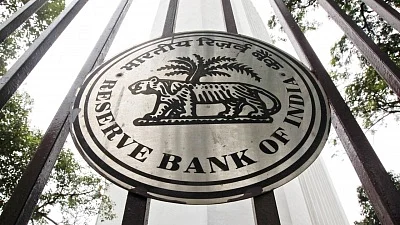This article has been authored by a member of The Quint. Our membership programme allows those who are not full-time journalists or our regular contributors to get published on The Quint under our exclusive 'Member's Opinion' section, along with many other benefits. Our membership is open and available to any reader of The Quint. Become a member today and send us your articles on membership@thequint.com.
On 28 May, the Reserve Bank of India (RBI) announced the development of a FinTech Repository which would provide comprehensive data on FinTech companies (both regulated and unregulated). This will help policymakers in improving their understanding of the sector and develop an appropriate policy framework in this regard.
However, India's FinTech companies are still not very sure about how to interpret the RBI's data repository measure.
The repository will act as a centralised platform for capturing essential information about FinTech entities, their activities, technology uses, etc. Also, it will make data, trends, and analytics available at the sectoral level useful for industry stakeholders.
This initiative, while seemingly benign at first glance, has left the industry divided.
The Pros
Most of the companies have applauded the initiative, arguing that the repository will allow the financial regulator to obtain more comprehensive understanding of the ecosystem, including fundamental data like the exact number of startups and information on the numerous sub-sectors that have mushroomed within the field.
It is important to remember that the FinTech repository was previously brought up in December 2023 as part of the RBI's bimonthly release. Firms operating beyond traditional FinTech, along with their unconventional lending methods, have posed regulatory challenges for the RBI in formulating policies.
In this context, one can think of the cases with neo-banking FinTechs, Niyo and Zolve.
Since then, the RBI has taken up this issue of bringing these FinTechs within the ambit of the current regulatory framework.
Additionally, FinTech entrepreneurs view being included on the portal as akin to being placed on a whitelist, signifying that their company is open to sharing information with regulators because they have nothing to conceal.
This possibly would give a signal to those firms who were planning to hide beneath the cover.
A few FinTech founders point out that the data repository might improve corporate governance and transparency, mainly because it would incentivise businesses to provide the RBI with updates on a regular basis for internal tracking.
Moreover, it will provide FinTech companies that don't fit the RBI's definition of a “regulated entity” some measure of legality and credibility.
Cons of having a FinTech Data Repository
The FinTech data repository has a lot going for it, but not all businesses in this space are convinced.
Firstly, there is much uncertainty regarding the precise data that corporations are required to reveal, and the RBI has not provided any clarification on this matter to the firms. Many claim they would be hesitant to divulge information that rivals might use against them.
FinTechs have frequently expressed concern about past policy changes, claiming that too much chopping and changing can come in the way of innovation. In the context of regulation, the Paytm episode shows that Paytm being a leader in innovation probably took risks that went beyond what the regulator would have approved.
So, the debate still goes on as to whether too much regulation is choking innovation.
Lastly, an extra burden stems from the expenses related to conducting internal audits and filing reports to the RBI, especially for the small startups.
The development of such a repository also comes at a time when instances of poor corporate governance are making news, and the RBI has tightened its crackdown on the FinTech sector.
Earlier this year, the RBI ordered an unnamed card network to immediately stop processing all card-based business payments made through payment intermediaries to entities that do not accept card payments.
However, with regard to this Data Repository, once the RBI provides the list of requirements it demands from FinTechs, the scenario will become lot clearer.
(Sovik Mukherjee is an Assistant Professor in Economics, Faculty of Commerce and Management, St. Xavier’s University, Kolkata. This is an opinion piece and the views expressed above are the author’s own. The Quint neither endorses nor is responsible for the same.)
(At The Quint, we question everything. Play an active role in shaping our journalism by becoming a member today.)
